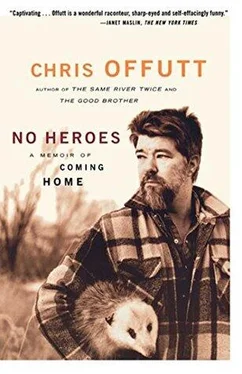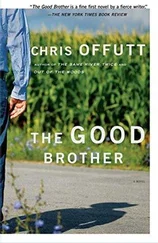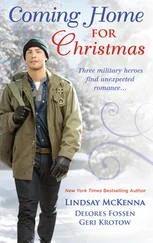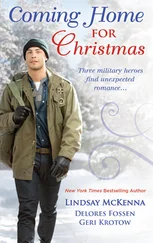My friend is in charge of this electrical group and one day he pushed me out. The new situation was much worse. The very nasty Ukrainian SS was in charge. Absolutely brutal. The worst. It was a miserable camp. My friend sent me there. My friend did it to me.
One day a boss comes in. He had an artificial leg. We go into the area where I am in charge of electrical work, maybe six hundred feet down. Everything is dark. Lo and behold, we find my men eating breakfast. The boss chases the men with a stick, the handle of a pick. That’s how he walked, because he needed a cane. Everybody ran away but me. I’m in charge. I don’t run away. He hits me with the pick in the side. Then he starts hitting me on the head, but I put my hand to protect my head. He could have killed me with one shot, but he was hitting me with compassion, not to kill me. He hit my arm and broke it. My working days are over.
Scozisco was a village deep in the woods. They liquidated all the Jews from the village and a little boy sneaked into my barracks. I discovered him very scared. He was too small to work. He would be killed, but he sneaked to the camp to hide. The Jews were completely gone. Nobody wanted him. That little boy covered himself from death.
I said we have to take him out from here because if they catch him, he will be dead. I had this striped dress, it was very wide. And a big coat. I put him under my clothes and he was walking on the other side of the guard. If they catch me, they shoot me. I took him out of barracks to the factory where we work.
I talked to the boss, Gajowcgyk. I told him this little boy run away from the Germans. So Gajowcgyk said, I keep him here. He can clean my shoes and do the work. He gave him a little straw in the corner and there he was.
His name is Elie Kupiec.
I talk to Arthur on the phone. He tells me he is lonely. His friends are dead. He is backup man at his temple in order to make a quorum for minyan, and he sees some people then. They are all retired. They look at their lives and examine what they’ve done with them. One man says he made a million dollars. Another says he made two. Someone else has a yacht and a place in Florida. Arthur claims none of these. He says that he is shrinking.
The cabinet doors of his kitchen no longer bang the top of his head. He spent years walking into the doors from his blind side, then getting angry at his wife for leaving the doors open. At last, he says, old age has made him safe from himself.
Yesterday at the bakery a women cut the line in front of him but he let it go. The next woman did the same, and he protested. The baker apologized. He hadn’t seen Arthur standing there. “Good thing,” Arthur says to me, “the baker didn’t say I was short.”
I laugh at his reference to once having knocked a young man to the floor of a bank for calling him short. The incident happened ten years ago. Arthur told the story with shame and humility, but secret pride. At age seventy he could still take care of himself. Now, at eighty, he cannot. The last time he tried to kneel he was unable to rise. He cannot run and he cannot punch. His bowels treat him unfairly. “Waugh,” he says, “it’s no fun, this getting old. No fun at all.”
The key to understanding Arthur is knowing something of myself. I can never be truly happy because I mourn everything in advance — the wilting of flowers before they bloom, children leaving home, the end of each season during its lovely apex. The same is true of food and sex. Every meal is the finest, which means there will never be another. The last time I made love was the best ever. All further sex will be downhill.
Arthur never thinks something is the best, but that it might be a little better. If he brings home the most delicious cake from the bakery, he worries that there was a tastier one he didn’t get. I, on the other hand, worry that there will never be a cake as good. The best cake in the house makes us both sad.
Quite simply, Arthur is adept at surviving rather than living. He knows how to get through a situation. He knows how to circumvent, withstand, compromise. He knows how to hope. He knows how to suffer. It’s the living he has trouble with, the same as me.
Arthur looks at the future and I at the past. Perhaps this is why we enjoy each other’s company — an unlikely match surely — an eighty-year-old Polish Jew and a forty-year-old Kentucky hillbilly. We recognize in each other what we crave for ourselves.
On the phone last night he was lonely and tired. He is becoming one of the last of his community of Holocaust survivors. He has not made a million dollars or designed great buildings, and doesn’t own a yacht. He’s not sure what he’s done with his life. After sixty years, he still misses his brother.
I get pissed — we are always getting pissed at each other — and I shout into the phone. “You have a successful marriage to one woman all your life. You have two daughters who love you. You have three grandsons who adore you. That is the definition of success, Arthur. Most people don’t have any of that. You have it all.”
There is a silence on the other end of the phone. He is sitting in his chair in a dim room in Queens, a man who never expected such an outcome to his life — living across the sea from home, listening to a gentile son-in-law shout praise in a foreign language.
“To hell with the yacht,” I say.
“What’s wrong with a yacht,” he says. “You don’t want a yacht? Take your family on the ocean. Hire a captain and a cook and lady to massage your neck.”
“Arthur,” I say, “you should look back on your life with satisfaction. You’ve done a lot. You’re an ethical man and your family loves you. All except one thing — you’re short.”
“You had to say it!” he yells. “You son of a bitch, you had to say it.”
But he is laughing and I know that is partly why he, called. I have done my duty. I have restored his dignity with a grave insult. He’s still alive, one of the gang, able to take a good joke.
“Good-bye, Sonny,” he says. “Good-bye.”
The conversation has saddened me. I wonder how I will look at my life when I am in my eighties. I walk through the house to find my sons and wait for them to make me laugh. No one speaks. I realize that they are waiting for me to do the same. This strikes me as funny. I smile. James asks if my face hurts and I tell him no.
“It’s killing me,” he says. “It’s killing me.”
Winter arrives in a slow blur of muffling snow. Each blade of grass leans into its tiny drift. Snowlight glows all day. Squirrel tracks are delicate runes in the whitened earth. I enter the woods, where there is no time, only the slow revolution of season. Winter is the land’s long rest, the ashes in which the Phoenix sleeps.
I have gotten through the first semester at MSU. My student evaluations are strong. I didn’t forge strong bonds with colleagues but made no enemies either. Teaching four classes a week has left me weary and ready for rest. The house holds a menorah and a Christmas tree. Sam and James are excited that celebrating Hanukkah includes eight days of gifts.
Deep within me lurks a permanent winter, a dark solstice of the soul. Blue shadows spread over the snow like pools of water in white sand. The sky is granite between the hills. I sit in a bare swatch of snow and lie on my back. I want to leave the cuneiform of my body imprinted on the glistening land.
Eugene, my best writer, has dropped out of school. The admissions office has no listing of a phone for him in Martin County. His address is a rural route number. The culture of the hills has reclaimed Eugene as one of its own. I quit MSU twice and I wonder if any of my teachers felt as responsible for me as I do for Eugene. Perhaps I failed him in some way.
Читать дальше












